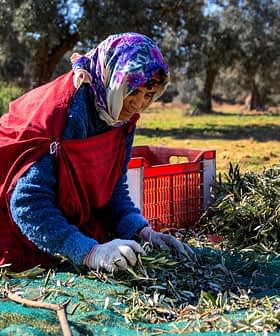Tunisian olive oil exports are set to increase after the European Union has adopted plans to help the country’s economy recover following the beach massacre terror attacks in June.
Since the terrorist incident when 38 European tourists were gunned down at a beach resort in Sousse and another 39 seriously injured, the Tunisian tourism industry has taken a battering.
Tunisia can count on the EU’s support in such a difficult time.
Crazed gunman and ISIS supporter Seifeddine Rezgui, 24, went on an 11-minute killing spree in the holiday resort until he was eventually shot dead by police. The incident sent shock waves around the world and European holidaymakers have avoided the country this summer.
One way the European Union says it can show support is to encourage member states to import more Tunisian olive oil, which is the country’s main agricultural export to the EU.
Tunisia’s olive oil industry is a vital part of the country’s economy, providing direct and indirect employment to more than one million people and representing one-fifth of the country’s total agricultural employments.
The new EU initiative will dramatically increase Tunisian olive oil exports to the EU, bringing much-needed short-term economic boost to the country.
The European Commission deal, in place until the end of 2017, offers a unilateral annual duty-free tariff quota of 35,000 tons for Tunisia’s exports of olive oil to the EU, in addition to the existing 56,700 tons under the EU-Tunisia Association Agreement which has been running since 1995.
“Exceptional times call for exceptional measures. The proposal is a strong signal of EU solidarity with Tunisia, and follows up on my commitment to Prime Minister Essid and Foreign Minister Baccouche. Tunisia can count on the EU’s support in such a difficult time,” said High Representative of the European Union, Federica Mogherini.
Commissioner for Agriculture and Rural Development Phil Hogan said Tunisia’s olive oil sector is one of the most important economic sectors of the country and it is morally right for Europe to help it recover.
“This initiative is a result of the EU commitment to help the Tunisian economy following the recent terrible events. It’s a concrete effort targeted at one of the most important economic sectors of the country,” said Hogan. “It aims to create more jobs to the benefit of the Tunisian people.”
The legislative proposal will now go through European Parliament for scrutiny and formal adoption before it officially comes into force.








